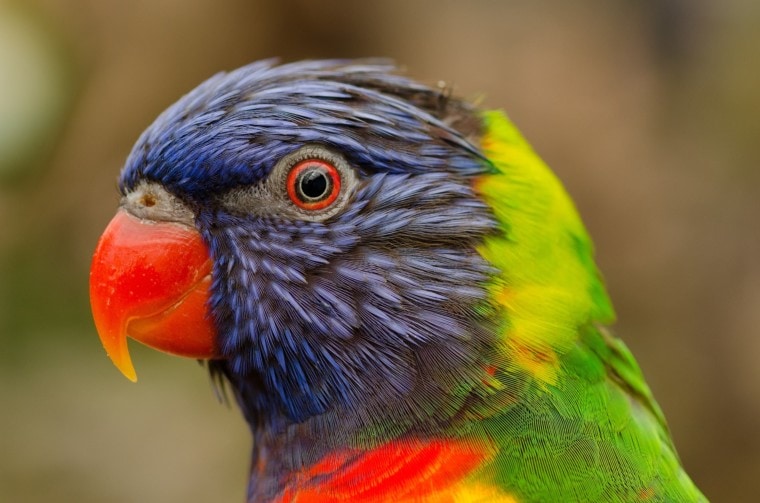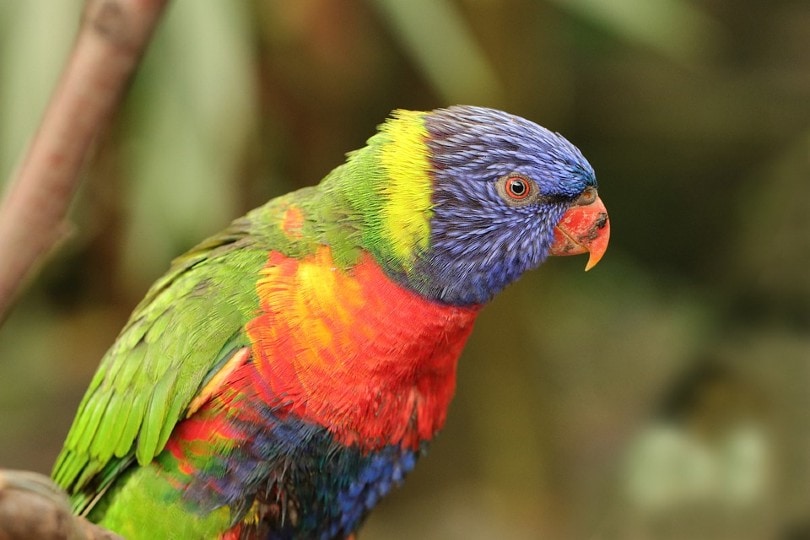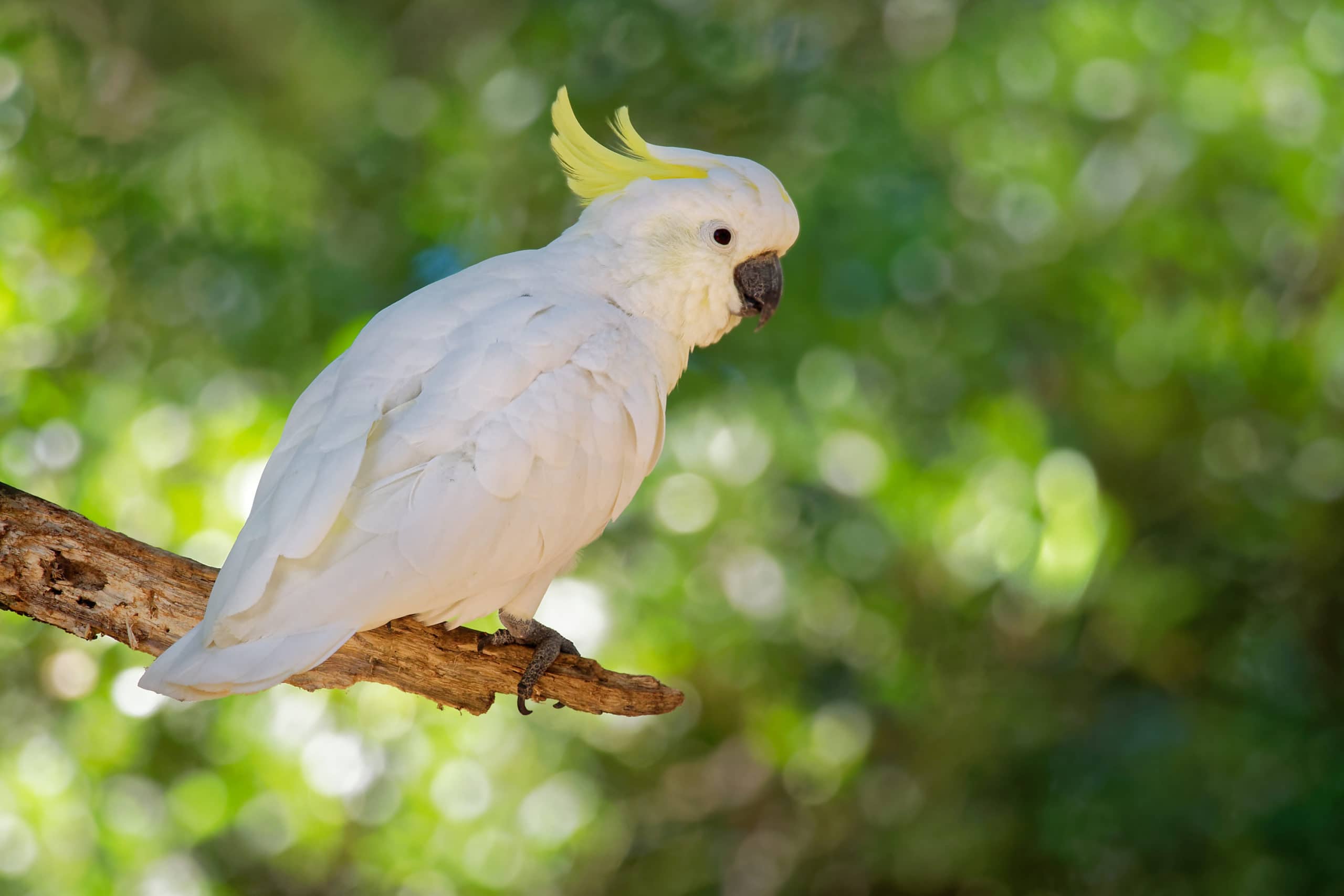
You can’t find a bird much more colorful than a lorikeet. Their bright blues and oranges make them unforgettable, so it’s hard to pass by one in the pet store without stopping to take a look. Still, you shouldn’t purchase these birds on a whim. There are high costs that go into owning these birds, especially when you account for their long lifespan.
Purchasing the lorikeet itself isn’t all that expensive. Usually, you can find these birds at a local pet store or breeder for as low as $25, though specific varieties can be hundreds of dollars. However, they require quite a bit of equipment, including a cage, toys, perches, and food. Some of these are one-time costs, but others are monthly expenses. You can expect to pay between $34 and $83 per month to own one of these birds.
In this article, we help you plan for all these expenses. Do know that the costs will change slightly depending on the species of lorikeet that you have.
 Bringing Home a New Lorikeet: One-Time Costs
Bringing Home a New Lorikeet: One-Time Costs
When you first adopt your lorikeet, you can expect to spend quite a bit of money. Not only do you have to purchase the lorikeet, but you also have to consider the bird’s equipment. An appropriately sized aviary can be pretty expensive. Your bird will also need perches, toys, and similar pieces of equipment. Some of these may need to be re-purchased later. If you’re finding yourself replacing toys and perches more often than you should, you probably aren’t buying appropriate options for your bird.

Free
It is possible to find these birds for free. Many people don’t realize just what they’re getting into when they purchase a lorikeet. These birds can live for a relatively long time, and they are social and require a decent amount of attention, which some owners can’t provide year after year.
We highly recommend researching lorikeets extensively before you purchase one. While they are small and pretty, they do require more care than most people imagine. Some owners realize their mistake after a year or two. At this point, they may attempt to give their bird away.
If you know a family member or friend who is re-homing their lorikeet, it may be an excellent time for you to acquire one. Just be sure that they have been taking proper care of the bird. You don’t want to receive an unhealthy lorikeet, as you may end up needing to spend extensive amounts on vet bills, ruining the point of the free bird.
Adoption
$25–$50
Lorikeets usually can’t be adopted, as many places don’t rescue birds. Animal shelters can’t support avians in most circumstances because they don’t know how to take care of birds and don’t have the proper equipment. Considering the amount of underfunding that most rescues deal with, they can’t go out and purchase anything that an abandoned bird may need.
You may be able to find independent bird rescues, but these are rare. If you manage to find an adoptable lorikeet near you, you can likely save a bit of money. From these places, expect the lorikeet price to be only $25 or so.
The primary objective of most rescues is to find new homes for the birds as soon as possible, not make money doing it.

Breeder
$250–$700
If you’re considering purchasing a lorikeet, we highly recommend going through a breeder. These bird experts know how to take care of their birds, and it shows. When you purchase a lorikeet from a breeder, it will probably be hand-reared and tame. Most are also extremely friendly, allowing them to settle nicely into your home.
The cost can depend on the type of lorikeet you purchase. Rainbow lorikeets are the most common and typically are the least expensive. Many breeders specialize in these birds, hence the lower cost. Burke’s backyard lorikeets can cost anywhere from $100 to thousands of dollars. They are much rarer, so their price will depend on your locality. If there are many breeders near you, the price will often be lower.
If there are not many breeders nearby, you can expect to spend extensive amounts of money to obtain one.
Initial Setup and Supplies
$200–$290
On top of purchasing your bird, you will need plenty of equipment. A lorikeet needs an aviary, toys, perches, nail clippers, and a wide assortment of other gear. These birds may be small, but the pile of supplies in your cart absolutely won’t be.
If you’ve never owned a bird before, it can be challenging to determine how much everything will cost. You don’t want to plan on spending $50 on a cage when the accurate price is closer to $150.
Here, we’ve laid out a basic example of what you can expect to spend. The prices can vary depending on how much splurging you do. Sometimes, your location can also affect the price.

 List of Lorikeet Care Supplies and Costs
List of Lorikeet Care Supplies and Costs
| Aviary | $100–$150 |
| Cover | $25 |
| Food and Water Dishes | $10 |
| Perches | $15 |
| Toys | $15–$30 |
| Mineral Chew | $5 |
| Spray Bottle | $5 |
| Nail Clippers | $5–$15 |
| Ladder | $8–$15 |
| Nest | $4–$12 |
| Wing Scissors | $8 |
How Much Does a Lorikeet Cost Per Month?
$34–$83 per month
On top of one-time purchases, you’ll need to purchase a variety of other items regularly. Lorikeets require about the same care as other pets. They’ll need food, water, bedding, and vet care. Just because they are smaller doesn’t mean that their needs are less expensive than those of a cat or a dog. You’d be surprised by how much one of these birds can eat!
Lorikeets are not cheap pets. Be sure that you properly budget for a bird before deciding to purchase one. Here, we help you determine just how much your pet may cost.

Health Care
$23–$63 per month
If you want your bird to live a long and happy life, healthcare is an absolute requirement. This category includes expenses like medications and vet visits, as well as food for your bird. Birds may not need some of the traditional expenses of other pets, but you will recognize most of these if you’ve ever owned another pet.
These costs can vary depending on where you live. Geographical locations have a massive effect on vet costs, especially when it comes to exotic animals. These birds may be small but their expenses can get relatively high.
Food
$9–$20 per month
Your lorikeet won’t need that much food, but poor nutrition can cause many different health problems. Sadly, many owners aren’t aware of what their birds should be eating.
Preferably, most lorikeets should be eating a commercial bag of lorikeet food. They also have nectar and pollen substitutes, as lories naturally eat flowers. Unfortunately, these spoil quickly due to their high sugar content, and no bird can live on spoiled food.
On top of this, your lorikeet will need to eat fruits and veggies. These birds eat a wide variety of different foods in the wild, including fruits and veggies of all sorts. You should try to replicate this diversity as much as possible.
Medications and Vet Visits
$4–$17 per month
Like all pets, lorikeets need regular vet care. Usually, vet visits will only involve a quick exam and perhaps some wing clipping, if you don’t take care of that yourself at home. Many people will pay very little for these exams. Lorikeets don’t need that many tests at their annual exams.
There are few medications designed for birds, but typically, you don’t have to worry about paying for any future medications. This keeps your costs relatively low.
Your main task will be to seek out a vet to begin with. In some areas, exotic vets can be challenging to find.
Pet Insurance
$10–$22 per month
Pet insurance can be challenging to find for birds. Companies that offer coverage in the “other” category are hard to come by. However, there are a few insurance companies that do offer health insurance for avian species. Your lorikeet will likely fall into this category.
In many cases, insurance for birds is cheaper than plans for cats and dogs. Birds tend to have lower bills overall, hence the lower insurance cost. Plan options are usually small for birds. Your geographical location affects the price quite a bit, though, so plan accordingly.
Supplements
$0–$4 per month
Some lorikeets will require supplements. Typically, a bird with a diet of 80% pollen, nectar, and pellets will not need a supplement. These foods provide all the vitamins and minerals they need.
However, birds that eat lots of fruit will require some level of supplementation. Birds in different life stages may need supplementation too, such as egg-layers. Your vet should help you determine which supplements your lorikeet may need.
Luckily, even if your bird does need a supplement, these are relatively inexpensive. One package often includes enough to last you for months.

Environment Maintenance
$1–$5 per month
Cleaning a lorikeet’s cage is a large part of keeping it healthy. Birds eat and defecate in the same space. If the cage is left dirty, they will get sick.
Newspaper or paper towels should be used to line the bottom of their cage. You can throw this away every day, ensuring proper sanitation. There are some commercial beddings available but these are not recommended. Many are harmful to birds and cost far more than paper towels.
The entire cage should be scrubbed once a week with water and a non-toxic disinfectant—food and water bowl included. Many household cleaners are safe for birds. But you can purchase a bird-specific cleaner if necessary. A bottle of these cleaners lasts a very long time and is extremely inexpensive.
Perches should be changed every 6 to 12 months, along with other wooden materials. Wood cannot be disinfected thoroughly.
| Bedding | Practically free |
| Cleaner | $0–$2/month |
| Perches | $1–$3/month |
Entertainment
$10–$15 per month
Birds are intelligent creatures, so they often require a bit of entertainment. You should expect to purchase toys for them regularly. While most toys will last a while, your lorikeet can become bored with only the same options available every day. Many bird owners have their toys on a rotation so something is always “new.”
Some toys are consumable, and these will need to be replaced more often. There are tons of different toys available on the market. Many promise to provide your bird with hours of fun. However, your bird will have the most fun when interacting with you.
 Total Monthly Cost of Owning a Lorikeet
Total Monthly Cost of Owning a Lorikeet
$34–$83 per month
Lorikeets won’t cost as much as some traditional pets. However, they will still cost a bit each month. We highly recommend budgeting for these birds before you adopt one.
After your initial setup, your monthly costs will be minimal. Your bird will have food, water, toys, and vet care—just like any other animal out there. Since they are so small, most of these things cost very little.
If you opt to get pet insurance for your lorikeet, this will likely be relatively inexpensive. Insurance companies understand that these birds don’t have high vet costs.
Additional Costs to Factor In
Some costs are nearly impossible to budget for. If your lorikeet gets sick, for example, you may find yourself with an unplanned vet bill. While these birds don’t have substantial vet costs, treatment for disease and sickness can reach the thousands. Pet insurance can help keep unplanned vet bills at a minimum. Most do have a deductible and co-pay, though, so you’re going to have to pay something.
If you go on vacation, you will need to find a pet sitter for your bird. Finding an appropriate pet sitter is often tricky, as most don’t have experience with lorikeets and other birds. In many cases, these pet sitters charge quite a bit.
For birds that need more social stimulation, pet sitting can be expensive. In-home boarding can cost as much as $35 a day, while visits to your home are often less expensive. If you’re gone for a few days, you can expect to pay somewhere around $50 to $100.
We recommend a small emergency fund of $1,000 to help cover these unknowable costs.

Owning a Lorikeet on a Budget
You can own a lorikeet while on a budget quite easily. After the initial supplies, you will pay a small amount each month. The aviary is going to be your most significant expense. It is essential not to compromise on size to save a bit of money, though. We highly recommend shopping for aviaries on sale and price-checking across many websites.
It is also important not to compromise on food. Lorikeets have unique dietary needs, as they eat nectar and pollen heavily. You will need to purchase a specialty food of some sort, or your lorikeet’s health could suffer.
Skipping vet care is also not recommended, especially since vet visits will often include wing clipping. Avoiding preventative vet care can lead to higher vet costs later.
Saving Money on Lorikeet Care
Luckily, there are a variety of other ways that you can save money on lorikeet care. Shop for toys on sale. There are often at least a few that are appropriate for lorikeets on sale at any one time. Since your bird probably doesn’t care about the same toys they get, this can be a great way to provide entertainment on a budget.
Use cheap bedding, like newspaper and paper towels. Don’t purchase a commercial option. Use a regular household cleaner to keep the bird’s cage clean. Be sure to check that it is bird-safe before using it, but many ordinary household cleaners are.
Buy your bird’s food in bulk when possible. Most nectar mixes don’t go bad until you add water, so you can purchase huge quantities at a time. Just don’t add water until your bird needs it.
- You may also want to read: Goldie’s Lorikeet
 Final Thoughts
Final Thoughts
Lorikeet care isn’t as expensive as caring for a dog or a cat—in most cases. After you purchase an aviary and other one-time supplies, your costs will likely be relatively low.
Still, ensure that you budget correctly for this bird. They have many of the same needs as other pets, including food and vet care. These costs will add up over time.
Luckily, there are also many ways to save on care. For instance, you don’t need to use commercial bedding, as newspapers work perfectly fine. Many home cleaners work perfectly fine for their cage too. You don’t even need a birdbath. A plastic container may work just as well.
Featured Image Credit: Pixabay
 Bringing Home a New Lorikeet: One-Time Costs
Bringing Home a New Lorikeet: One-Time Costs List of Lorikeet Care Supplies and Costs
List of Lorikeet Care Supplies and Costs





